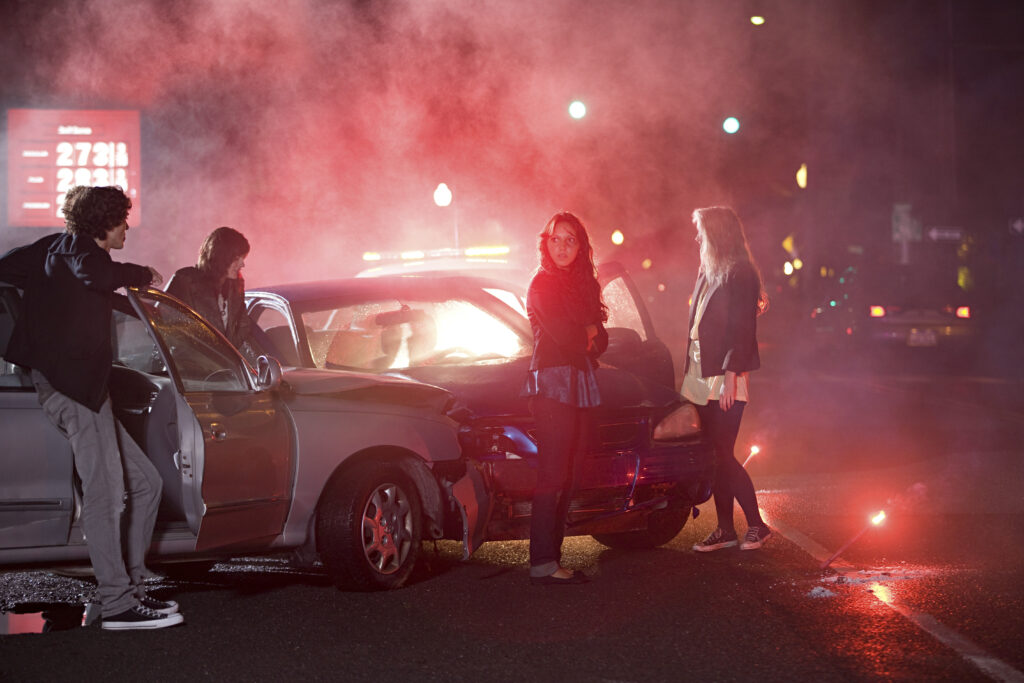The growth of Uber and Lyft across Massachusetts has made getting around easier than ever—but when a rideshare vehicle is involved in a crash, determining who is financially responsible is far from simple. Many people assume that Uber or Lyft automatically pay for any accident involving one of their drivers, but liability depends on whether the driver was using the app, waiting for a passenger, or actively transporting someone. Understanding how rideshare insurance coverage works under Massachusetts law can make a major difference in protecting your rights after an accident and suffering a personal injury.
How Massachusetts Law Classifies Rideshare Drivers
Massachusetts regulates Uber and Lyft as Transportation Network Companies (TNCs) under state law (M.G.L. c. 159A½). Drivers are treated as independent contractors, not employees, meaning the companies aren’t automatically liable for every crash. However, both the driver and the rideshare company must carry specific levels of auto insurance coverage depending on the driver’s status at the time of the collision.
- When the App Is Off
If the Uber or Lyft driver is not logged into the app, the vehicle is considered a personal vehicle, and only the driver’s own insurance policy applies. The company’s coverage does not apply in this situation.
For example, if a rideshare driver finishes a trip, logs off, and later causes a rear-end collision, that accident would be covered solely by the driver’s personal auto insurance. - When the App Is On but No Ride Is Accepted
When the driver is logged into the app and waiting for a ride request, Uber and Lyft provide contingent liability coverage that supplements the driver’s personal insurance. This coverage becomes available only if the driver’s policy doesn’t apply or isn’t enough to cover the damages.
The coverage limits are:
- Up to $50,000 per person for bodily injury,
- $100,000 per accident for bodily injury to multiple people, and
- $25,000 for property damage.
This phase can create confusion for accident victims, as both the driver’s and the rideshare company’s insurers may try to shift responsibility.
- When a Ride Is Accepted or a Passenger Is in the Vehicle
Once the driver accepts a ride request and until the passenger exits the vehicle, Uber or Lyft’s full commercial coverage applies. This is the most comprehensive protection provided under Massachusetts law and includes:
- $1 million in third-party liability coverage,
- Uninsured/underinsured motorist coverage, and
- Comprehensive and collision coverage (if the driver carries these on their personal policy).
For example, if a Lyft driver picks up a passenger in Cambridge and is struck by another car en route to Logan Airport, Lyft’s $1 million liability coverage would protect the injured passenger and others involved in the crash.
How Fault and No-Fault Insurance Work Together
Massachusetts is a no-fault insurance state, meaning that injured drivers or passengers typically first file a Personal Injury Protection (PIP) claim through their own insurance policy for immediate medical expenses and lost wages. However, if injuries exceed $2,000 in medical bills or cause permanent harm, victims can pursue additional damages against the at-fault driver or their insurer. In rideshare cases, this could mean a claim against the driver’s insurance, Uber or Lyft’s policy, or both.
Common Questions After a Rideshare Accident
- Can I file a claim against Uber or Lyft directly?
Typically, claims are made through the rideshare company’s insurance carrier, not against the company itself. - What if the driver was “between rides”?
The contingent coverage applies only after the driver’s personal insurance is exhausted. - What if the app status is unclear?
The rideshare company’s electronic data can verify whether the driver was logged in or transporting a passenger.
Why Legal Guidance Matters
Because multiple insurance policies may overlap or conflict, rideshare accident claims can be complex. Insurance companies often dispute whether the driver was “active” on the app or who was at fault. An experienced Massachusetts personal injury attorney can obtain rideshare records, determine which coverage applies, and negotiate for full and fair compensation on your behalf.
Protecting Your Rights After an Uber or Lyft Accident
Whether you were a passenger, pedestrian, or another motorist, you deserve clarity and compensation after being injured in a rideshare accident. Understanding Massachusetts insurance laws and coverage tiers is critical—but you don’t have to navigate the process alone.
If you were hurt in a collision involving an Uber or Lyft driver, contact our firm today. Our experienced Massachusetts personal injury attorneys can explain how rideshare insurance, liability coverage, and no-fault laws work together and help you pursue the compensation you deserve for your medical bills, lost wages, and pain and suffering.
